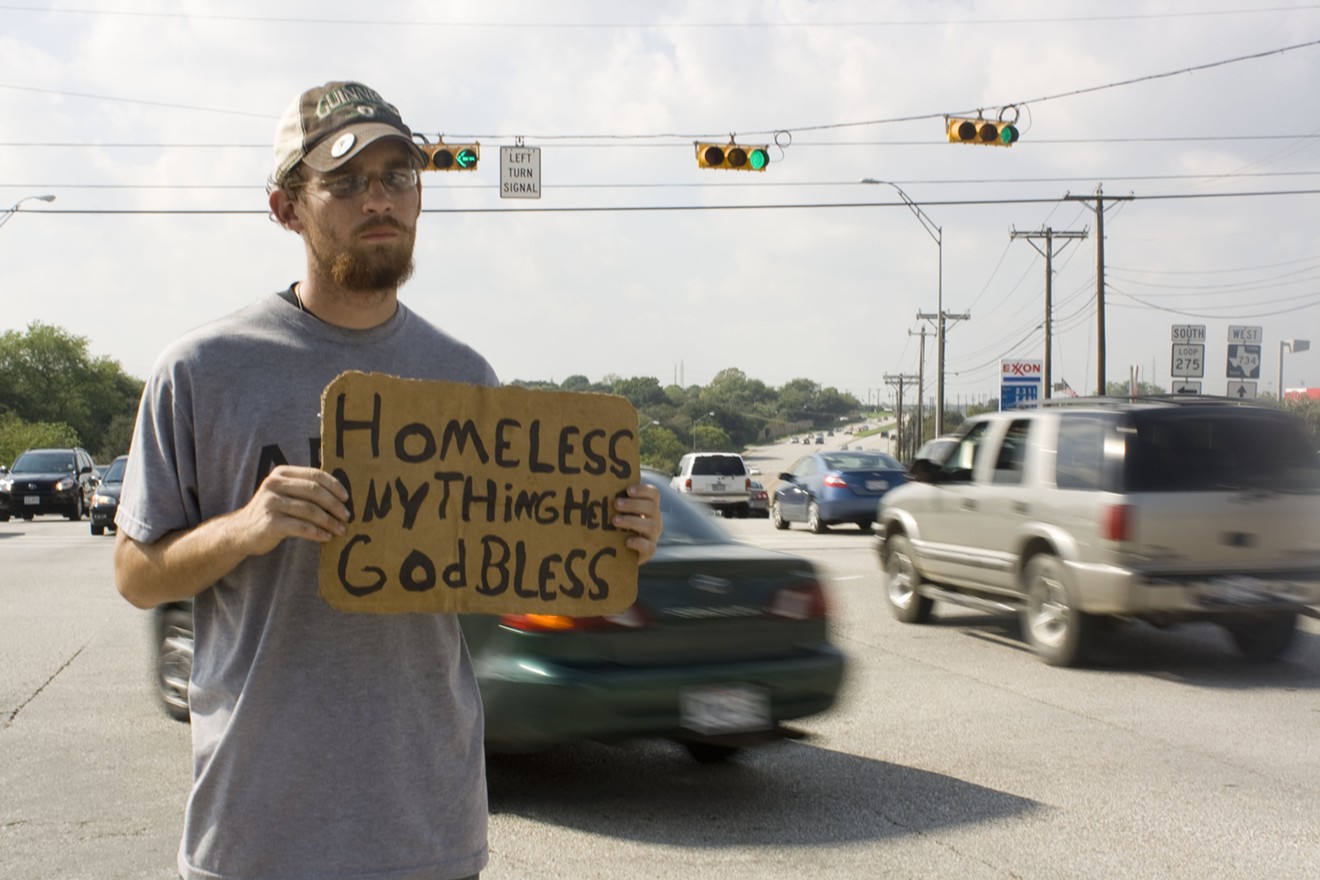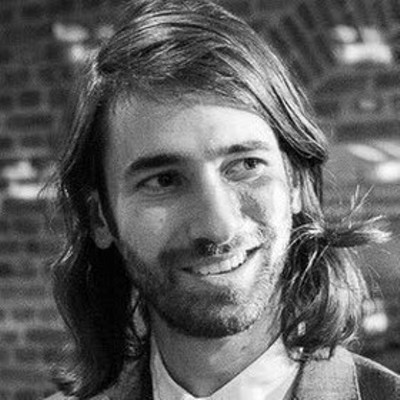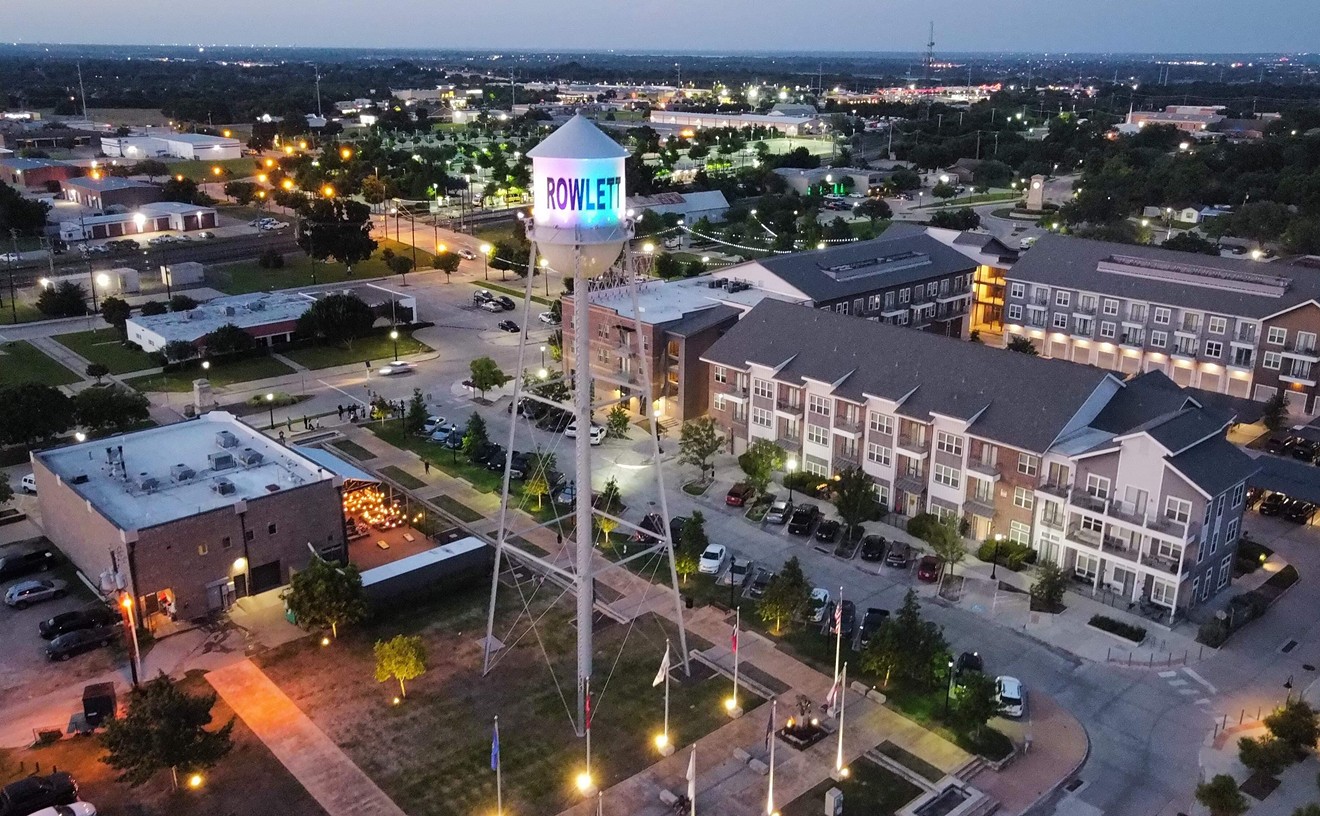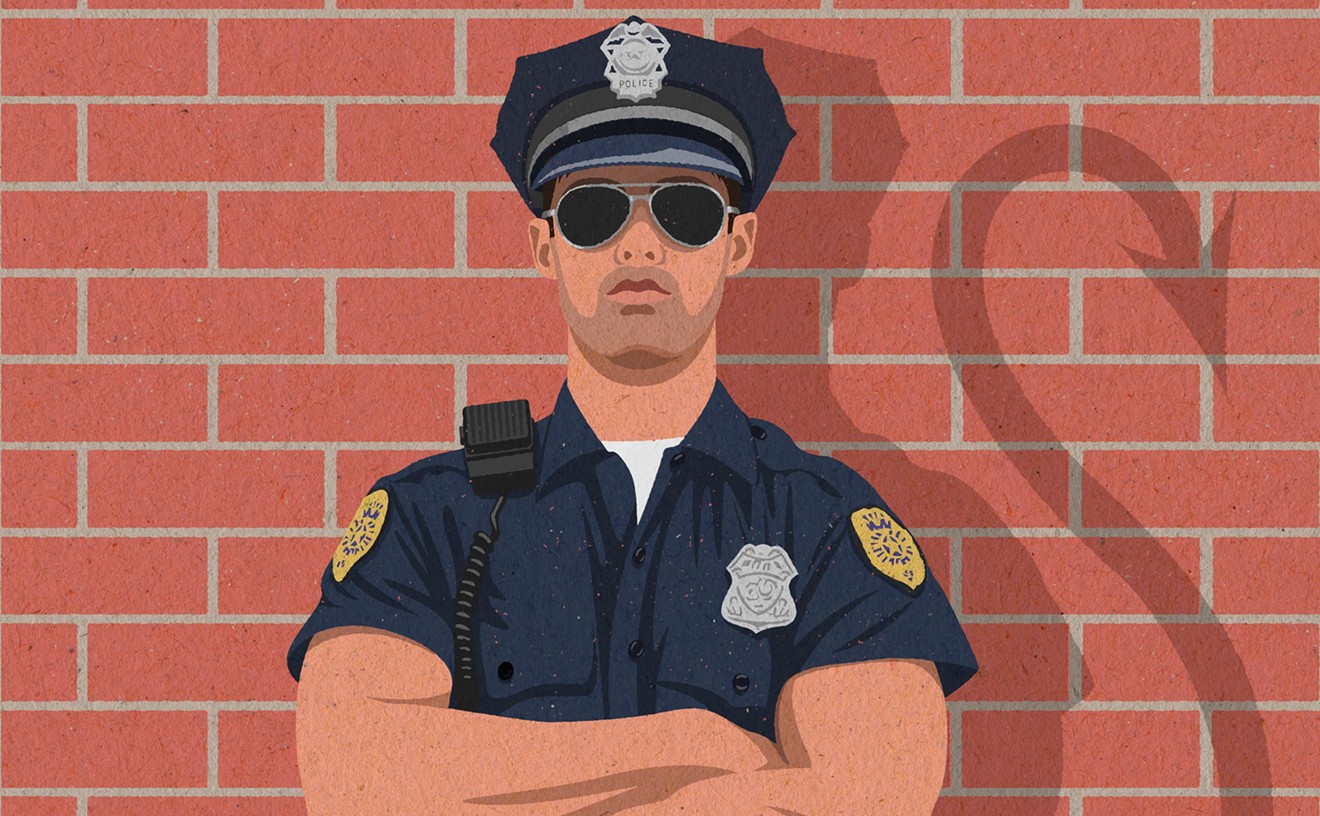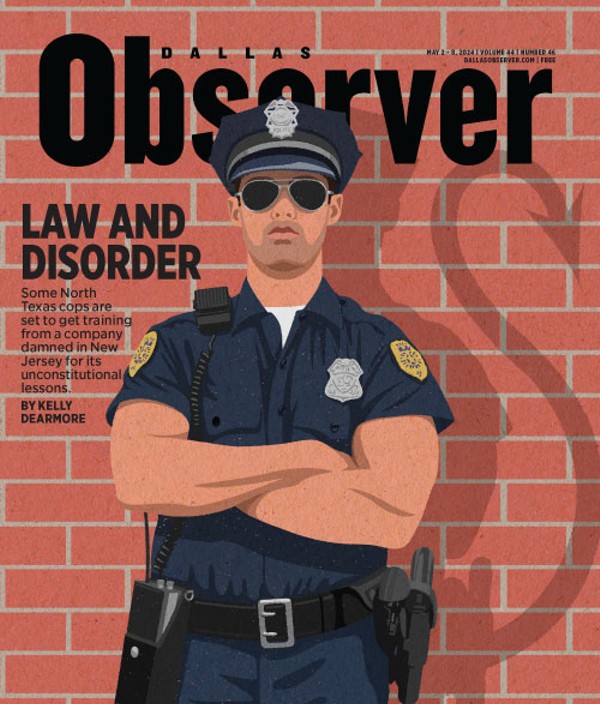Gbalazeh said she will receive $20,000 and a meeting with the city's police chief. She said the settlement sends a message: "There's going to be consequences in the future if they want to pick on people for just exercising their First [Amendment rights]."
The terms of the settlement are still pending final approval by the City Council. The city did not immediately respond to a request for comment.
Gbalazeh is a marijuana legalization activist who hung out on street corners in Deep Ellum with a cardboard sign reading "Will Rap 4 Weed." After being arrested under a city ordinance that prohibits roadside solicitation, she filed suit.
The legal complaint led with a quote from former council member Rick Callahan, who said, during a discussion of the impact of panhandling on local businesses at a 2014 council committee meeting, “Break their backs, break their spirit — that’s the only way we’re going to win this battle.”
Gbalazeh had a strong case. In 2013, a federal judge ruled that an ordinance banning roadside solicitation in a Houston suburb was "over-broad and invalid under the First Amendment." Even city of Dallas officials admitted their ordinance didn't pass legal muster.
They agreed to stop enforcing the law and later launched a public awareness campaign, which turned out to be a complete failure.
Gbalazeh tried and failed to convert the case into a class-action suit involving thousands of Dallas panhandlers. She said the expense of locating other — often homeless — victims of the law was prohibitive.Most people who are picked up for panhandling do not contest the crime, which allows them to get out of jail quickly. But doing so precludes them from winning damages in a federal lawsuit.
tweet this
Her lawyer, Ramon Rodriguez, cited another challenge. Most people who are picked up for panhandling do not contest the crime, which allows them to get out of jail quickly. But doing so precludes them from winning damages in a federal lawsuit.
So, Gbalazeh settled for a fraction of what she says was deserved.
Still, she won other victories. After getting to know two panhandlers who worked down the street from her house, she brought them on as plaintiffs in the case. One, Lee Sunbury, had been arrested 11 times under the state anti-panhandling law. In 2019, the judge ordered the city to stop enforcing it.
But the judge said one of the two city ordinances prohibiting panhandling was likely constitutional.
That law, section 28-63.3 of the city code, bans soliciting cars from the side of the road. The judge wrote that, unlike the blanket ban, which the city was no longer enforcing, this ordinance was defensible because it maintained traffic safety. He feared that someone could be injured while handing over the cash in the middle of the road.
His fears turned out to be justified when a 12-year-old was struck and killed by a car while raising money for his track team only a few months later.
But the similarity between the supposedly unconstitutional state statute and the supposedly constitutional city ordinance continues to trouble Rodriguez.
"If you read both of them and you read the activity they prohibit, it’s remarkable to me how one could be deemed constitutional and one is not," he said.
For Gbalazeh, any joy she felt in winning a cash settlement was muted by a tragedy that occurred during the case's litigation. Sunbury died last year, on the streets.
"They broke Lee’s back and spirit," Gbalazeh said. "They dragged it on, and he died in the elements.”

